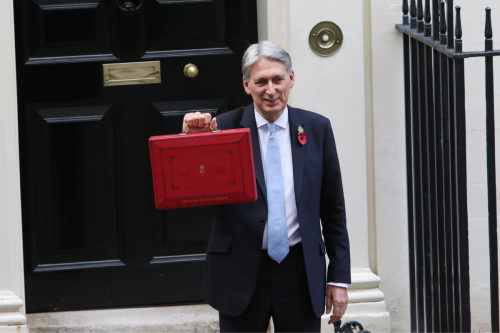According to Chancellor Philip Hammond, the 2018 Budget marked the end of the “era of austerity”. This, along with a new digital services tax on tech giants, a £500m pot set aside to prepare for Brexit and income tax cuts for high earners all grabbed the headlines, but what did the Budget yield for employers and the workforce?
The National Living Wage
From April 2019 the National Living Wage will increase from £7.83 to £8.21 an hour. This will come as a welcome boost to large sections of the UK workforce, but it will also give many employers pause for thought. While most businesses seem to be managing the additional cost pressures of paying the National Living Wage, it remains to be seen how firms – especially SMEs – will cope with the planned increase. With additional costs such as National Insurance contributions, holiday cover and maternity pay to consider, firms operating on tight margins may find themselves coming unstuck, even despite Hammond’s pledge to protect the Employment Allowance. As it’s a legal requirement to pay the National Living Wage, we recommend putting plans in place today to avoid disaster in April next year.
Changes to the Apprenticeship Levy
In another key change, the Chancellor has announced that the contribution small firms are required to make towards the Apprenticeship Levy will be reduced from 10% to 5%. This has been received positively by many small business owners and organisations, with the Federation of Small Businesses (FSB) describing the Budget as “the most small business-friendly budget that this Chancellor has delivered”. Small businesses will now be able to train apprentices at a significantly reduced cost, which will hopefully encourage more and more firms to take on an apprentice – in turn helping more young people onto the career ladder. In this respect, both employers and younger employees will profit from Hammond’s Budget.
Preparing for Brexit
The Government has set aside £500m to prepare for a No Deal Brexit. It remains unclear what the cash will be spent on, but it is unlikely that much of this pot will find its way into the pockets of small business owners or those of the wider workforce. The implications for staffing and recruitment could be profound, and this year’s Budget provided little reassurance that employers and jobseekers will be protected. With No Deal looking increasingly likely, it’s important to start making your own preparations today, especially if your business relies on a steady supply of EU labour. Draw up provisional staff rotas and put contingency plans in place so you’re prepared for any eventuality, including a sudden shortfall of staff. Our blog posts on sourcing last minute employees and recruiting staff post-Brexit are must reads if you are unsure how to go about this.
Have queries about the National Living Wage or the Apprenticeship Levy? Need advice about planning your future recruitment strategy? Call Frontline Recruitment today for a confidential consultation. Our experts will be more than happy to help.






Get Social
Facebook
Twitter
LinkedIn
Youtube